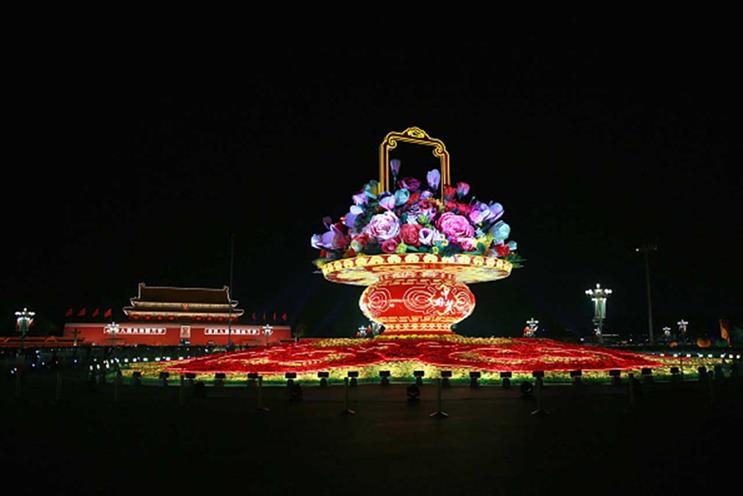Thanks to US trade and foreign policy, record-breaking sales from Chinese tourists are about to benefit brands and retailers in the UK – but the opportunity does not come without potential danger.
This year, Golden Week – beginning on 1 October, China's national day – will set new highs for Chinese tourist numbers and spending in the UK. The traditional overseas destinations for celebrating China’s second-most-important national holiday are the US, followed by Hong Kong, Taiwan and Japan – but they are all out of favour due to political factors, so this will drive much greater numbers than normal to Britain. Another bonus for retailers and brands is that what was once a week of high-spending celebrations has become nearly a month of it.
However, although Golden Week will bring large-scale buying from travellers intent on acquiring premium products and brands difficult to find at home, this year it arrives with some inbuilt jeopardy.
Versace’s recent and widely documented Hong Kong T-shirt faux pas was immediately emulated by several other leading fashion houses, including Gucci, Calvin Klein, Givenchy and Coach. This follows more than 12 months in which major Western brands have blundered from one crisis-management disaster to another, with Chinese consumers becoming increasingly antagonised by outsiders that seem to care about money but little about China or its people.
Boycotts of brands have become common. may never be repaired in what was its most important market. Versace will also lose huge sums in the coming years.
The US trade war has resulted in sensitivity towards anything potentially aggressive from outside China. Earlier this month, Muji became the subject of 12,000 negative discussions and 380 million views on social media after mentioning the "French concession" in some instructions on how to get to an event in Shanghai. The reference to the area's colonial name caused serious offence. Another brand boycott resulted.
In the UK, there is almost a lack of recognition of the heightened alertness to faux pas that comes with Chinese visitors. All it takes is a small mistake and the consequences may be dire.
On a more positive note, tourists from China are finding an improvement in the UK retail experience even before they leave home for the airport. The past 12 months have seen much greater commitment from high-street stores to adopt newer Chinese marketing technology, so travellers are now able to navigate their way through shopping opportunities in British cities and towns in great detail using dedicated WeChat mini-programs and the city pages of payment platform Alipay.
Mini-programs are essentially custom-built apps within WeChat that provide faster and more streamlined access to information and services. They have great appeal to Chinese tourists, the vast majority of whom plan shopping itineraries in advance. Britain is behind European counterparts in the use of these kinds of itinerary planning tools, but an increasing number of retailers are doing so.
In spite of the ever-expanding Chinese digital landscape, Weibo, WeChat and Little Red Book are still the best options when it comes to making it on to Chinese shopping itineraries. These apps carry huge amounts of user-generated reviews and recommendations for travellers that are veraciously consumed.
With no end in sight to the geopolitics that will steer increasing numbers of Chinese visitors to the UK, and with more brands and retailers investing in targeting them, sales in the UK from Chinese consumers are set to break records for years to come.
Marie Tulloch is senior client services manager at Chinese marketing consultancy Emerging Communications


